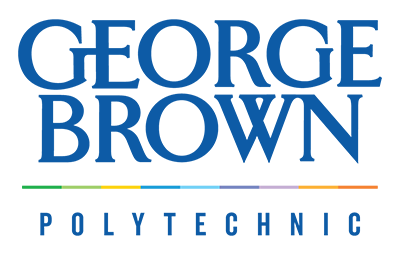Key Skills Every Electronics Technician Should Cultivate
It’s hard to find an area of modern life not connected to electronics. In every home, business, and educational institution, electronics make things run successfully. This being the case, there remains a high demand for skilled Electronics Technicians in the modern world. Today’s employers are looking for skilled electronics technicians, but specifically techs who have the right skills to keep their electronic devices and systems running properly.
The Electronics Technician Certificate Program at George Brown College focuses on high-demand, hands-on skills that make technicians highly employable. When choosing a program that is right for you, be sure to look for one that will teach you these important and highly practical skills:
Soldering
Soldering requires a high level of precision and knowledge of the right solder material and tools to connect components to circuit boards without damaging these delicate items. This skill requires hands-on practice using:
● Soldering irons and solder: In electronics, a smaller soldering iron provides the necessary level of precision. The preferred solder is 60/40 tin/lead or 96.5/3.5 tin/silver.
● Flux: This cleaning agent improves the adhesion of the solder.
● Magnification tools: These tools allow you to see the tiny components you’re working on. Performing tasks while wearing a magnifier requires practice.
In addition, you will need to know how to properly clean the soldering equipment and the proper ventilation safety measures to take in your workspace.
Breadboarding
Before building and connecting a circuit, you must first know that it will work. Breadboarding gives you a safe way to test a circuit.
A breadboard is a small piece of plastic filled with tiny holes that you can connect circuit components to and test their effectiveness, without the need to solder your connections. With this tool, you can build and reconfigure circuits multiple times until you find the right solution to your problem.
Breadboarding provides a safe place for testing new circuit builds and troubleshooting issues within a circuit. If you are highly skilled at breadboarding, your skills as an Electronics Technician will be in higher demand.
Circuit Diagnostics
An intimate knowledge of circuitry is necessary for an Electronics Technician. Circuit diagnostics includes knowledge of reading circuit diagrams, finding and fixing problems with circuits, and the ability to use circuit diagnostic tools.
To gain this in-demand skill, you will need hands-on practice with common circuit diagnostic tools, including:
● Multimeters: This tool measures voltage, current, and resistance to help test electrical potential, circuit path, and opposition to current flow.
● Oscilloscope: This tool provides a visual representation of the waveform of an electrical signal, which allows for advanced circuit diagnostics in digital systems.
● Logic analyzer: Electronics Technicians use this tool to diagnose concerns with complex digital circuits.
Within circuit diagnostics, you will want to develop both analog and digital circuit knowledge, so you are well-rounded for all potential types of circuits you will find in the field. Simulation tools can be an effective, safe and economical way to become familiar with these diagnostic tools.
Experience with Controllers
Electrical systems require controllers to operate, but there are multiple types that Electronics Technicians must know how to use. In your Electronic Technician Certificate Program, you will need hands-on experience with:
● Programmable Logic Controllers (PLCs) – These industrial-grade controllers keep machinery working properly in factory settings.
● Proportional-Integral-Derivative Controllers (PID) – These controllers use a feedback loop to keep a variable at a desired point. They work continuously to calculate the variable and ensure it is where it needs to be, making adjustments in the equipment when needed.
● Motor Controllers: These controllers regulate position, speed, and torque with electric motors.
● Process-Specific Controllers: These are controllers made specifically for one particular process. A general knowledge of circuitry and controllers makes it easier to use and fix these individual types of controllers.
Troubleshooting Techniques
The main reason why an employer needs an Electronics Technician is to ensure electronics function as they should. Because electronics are constantly changing, this requires a high level of troubleshooting ability.
When faced with a problem in the field, a skilled Electronics Technician needs to know how to use diagnostic tools and steps to find the root cause. They need creative thinking to look outside the proverbial box to find solutions.
In the electronics industry, proficient troubleshooters have the following skills:
● Understanding of how to use diagnostic tools
● Knowledge of how properly functioning electronic systems look and operate
● Excellent problem-solving skills to find and fix problems
● A desire to continue looking until a solution is found
Gain Hands-on Training in High-Demand Skills with Our Electronics Technician Certificate Program
Employers want to hire Electronics Technicians who have developed diagnostic and troubleshooting skills in these specific areas. You will gain all of these through our online Electronic Technician Certificate Program.
Our program builds troubleshooting and diagnostic skills using a suite of simulation tools that replicate real-world situations. You will learn the hard skills employers demand while gaining practical experience with the tools you will use in your career.
We also focus on the soft skills you need to provide excellent service to employers and customers in every industry. Our programs are designed for independent learning, so you can build skills at a pace that works for you.
Looking to start a career in the electronics industry? The Electronics Technician Certificate Program at George Brown College is designed to help you build the skills employers are looking for. To learn more, contact us or call 1-888-553-5333 to speak with a Program Consultant.
